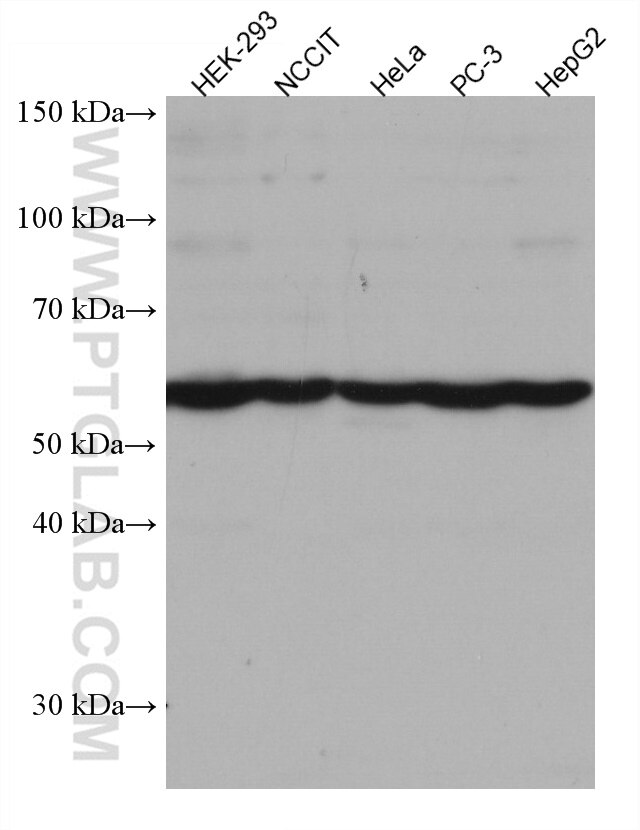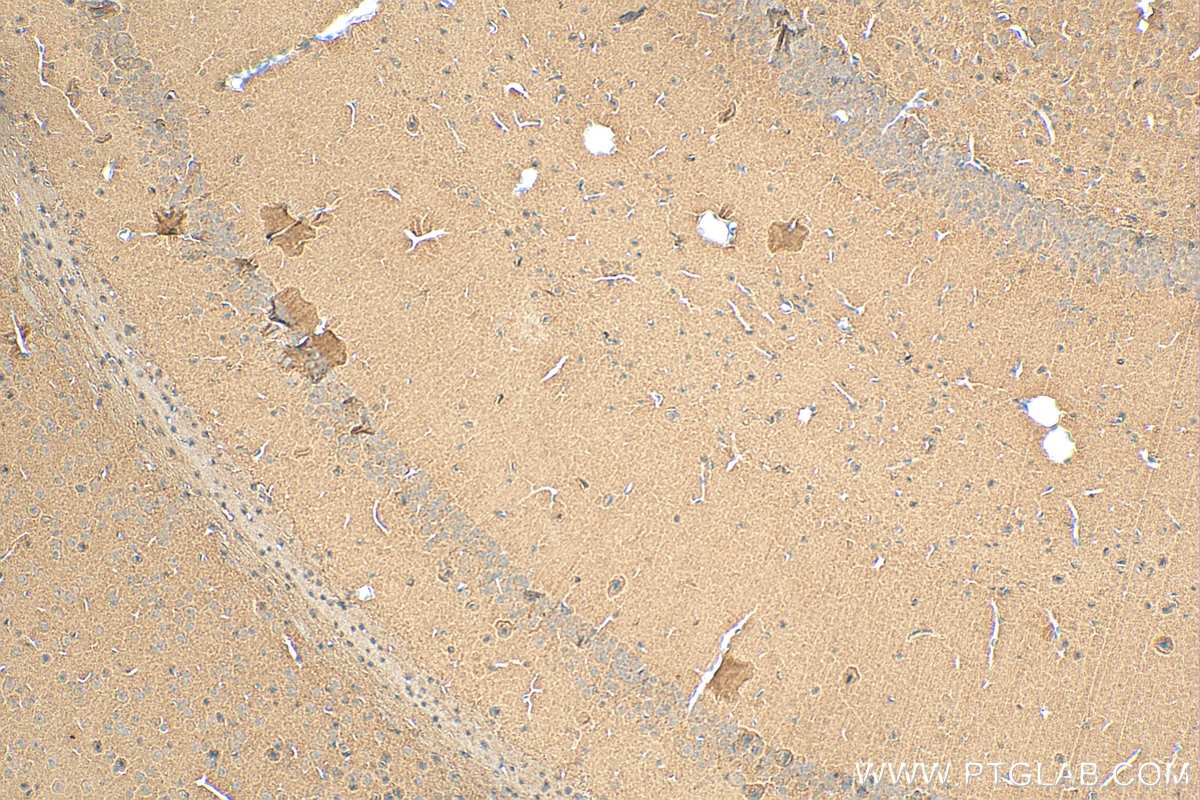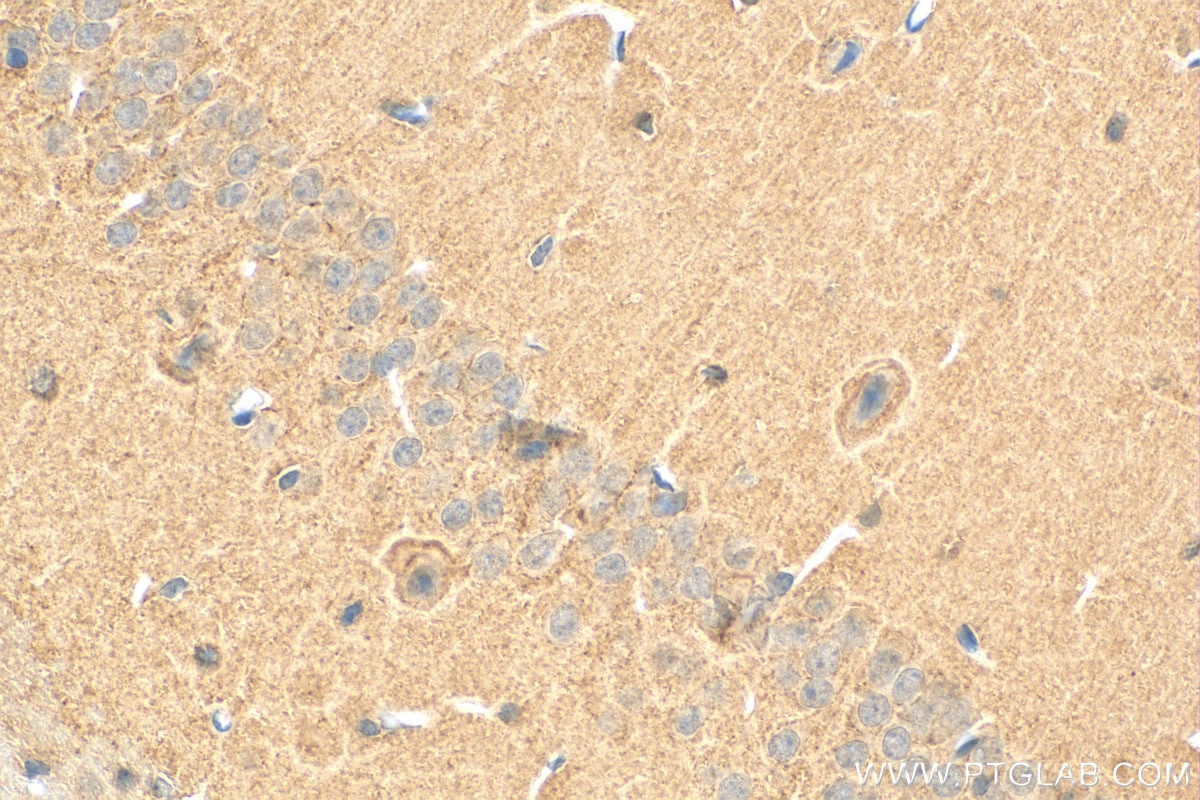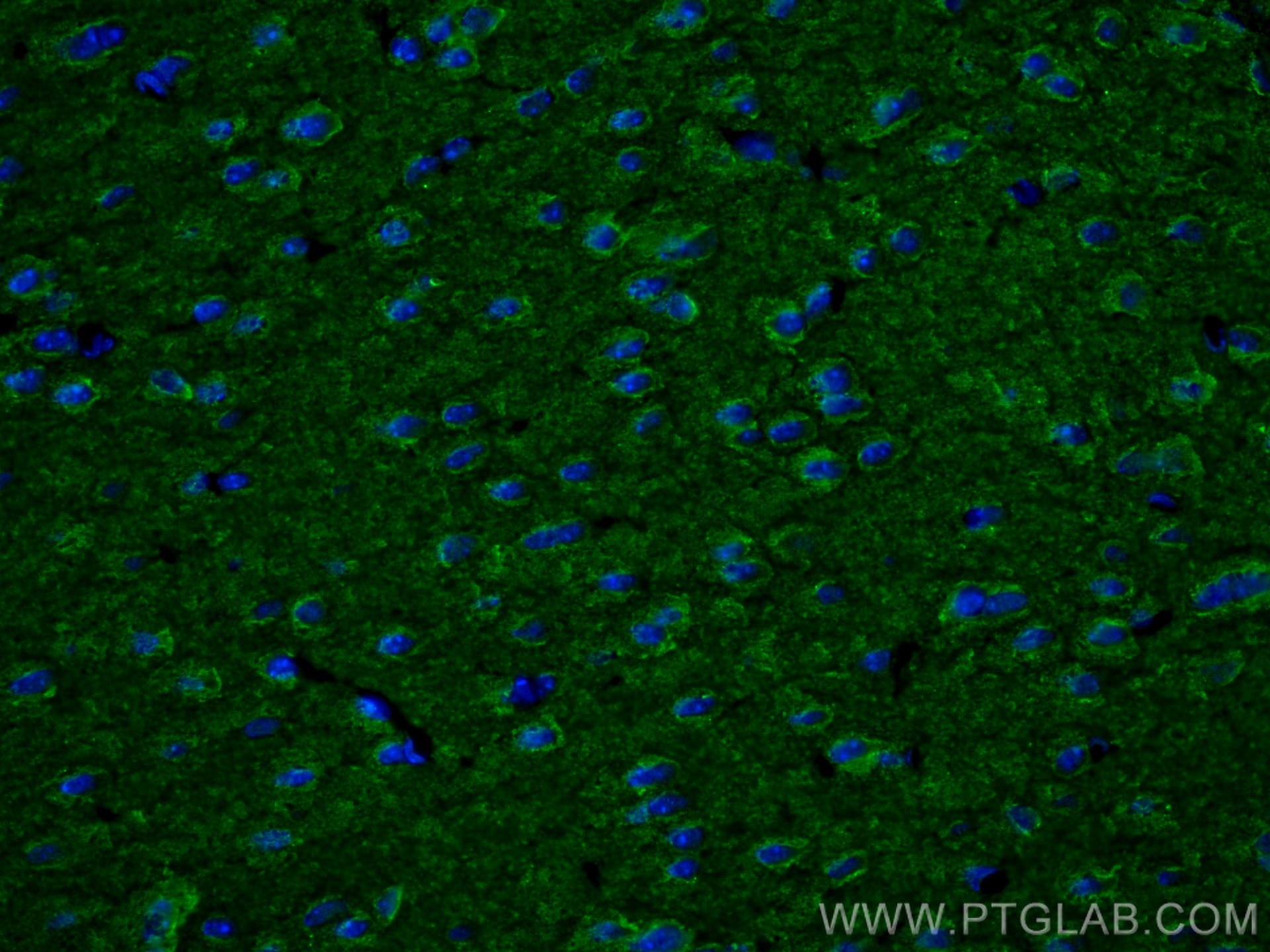SPAST Monoklonaler Antikörper
SPAST Monoklonal Antikörper für WB, IHC, IF-P, Indirect ELISA
Wirt / Isotyp
Maus / IgG2b
Getestete Reaktivität
human, Maus
Anwendung
WB, IHC, IF-P, Indirect ELISA
Konjugation
Unkonjugiert
CloneNo.
1F5A7
Kat-Nr. : 67361-1-PBS
Synonyme
Geprüfte Anwendungen
Produktinformation
67361-1-PBS bindet in WB, IHC, IF-P, Indirect ELISA SPAST und zeigt Reaktivität mit human, Maus
| Getestete Reaktivität | human, Maus |
| Wirt / Isotyp | Maus / IgG2b |
| Klonalität | Monoklonal |
| Typ | Antikörper |
| Immunogen | SPAST fusion protein Ag18866 |
| Vollständiger Name | spastin |
| Berechnetes Molekulargewicht | 616 aa, 67 kDa |
| Beobachtetes Molekulargewicht | 55 kDa |
| GenBank-Zugangsnummer | BC150260 |
| Gene symbol | SPAST |
| Gene ID (NCBI) | 6683 |
| Konjugation | Unkonjugiert |
| Form | Liquid |
| Reinigungsmethode | Protein-A-Reinigung |
| Lagerungspuffer | PBS only |
| Lagerungsbedingungen | Store at -80°C. 20ul Größen enthalten 0,1% BSA. |
Hintergrundinformationen
SPAST encodes a microtubule-severing protein called spastin. By severing microtubules into small segments, SPAST participates in the regeneration of neurites. Mutations in the SPAST gene (previously known as SPG4) are the most common causes of hereditary spastic paraplegia (HSP-SPG4). Mammalian cells express at least two spastin isoforms, a less-abundant full-length form (M1-spastin, 68 kDa) and a more highly expressed isoform (M87-spastin, 60 kDa) that lacks the N-terminal 86 amino acids of the full-length protein. Also, there are two additional 64 kDa and 55 kDa isoforms due to alternative splicing of SPG4 exon 4. This antibody recognizes all these isoforms of spastin.









